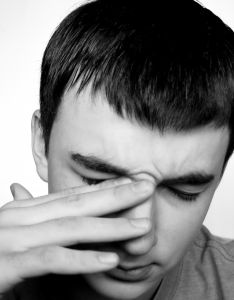 ONLINE BRIEFING: Tuesday 9 March 2010, 10.30 am NZT
ONLINE BRIEFING: Tuesday 9 March 2010, 10.30 am NZT
Climate scientists have been warning since the 2007 publication of the landmark IPCC 4th Assessment Report that the world’s nations need to cut carbon emissions to avoid the devastating impacts of climate change.
But the Copenhagen climate conference failed to produce a legally binding agreement to lower emissions and in the wake of the “Climategate” scandal, scepticism about the science of climate change is growing. People are increasingly tired of hearing worst case scenarios from scientists.
So how does science move forward when strategies for climate change mitigation and adaptation will potentially require significant social change?
Scientists and researchers who are part of the Asia Pacific STS (Science, Technology and Society) Network have been meeting in Wellington today to discuss our current climate change research agenda, assess what is being prioritised and examine how biophysical and social sciences can be better integrated.
The SMC is holding an online briefing featuring STS scientists that will examine the following questions:
- What is risk fatigue and how is it relevant to climate science?
- Is the challenge of climate change appropriately reflected in our wider national research, science and technology objectives?
- Are the demands of citizens, industry and policymakers being met through climate change research?
- What priorities do scientists themselves regard as important for the future?
LISTEN BACK
to an audio recording of this briefing:
Part one: [audio:https://www.sciencemediacentre.co.nz/wp-content/upload/2010/03/Climate-risk-fatigue-pt-1.mp3]
Part two: [audio:https://www.sciencemediacentre.co.nz/wp-content/upload/2010/03/Climate-risk-fatigue-pt-2.mp3]
SPEAKERS
Dr Ian Lowe: Emeritus Professor of Science, Technology and Society at Griffith University in Brisbane and adjunct professor at Sunshine Coast University and Flinders University.
Professor Lowe has been a referee for the Inter-Governmental Panel on Climate Change, attended the Geneva and Kyoto conferences of the parties to the Framework Convention on Climate Change and was a member of the Australian delegation to the 1999 UNESCO World Conference on Science.
From 1983 to 1989 Professor Lowe was a member of the National Energy Research, Development and Demonstration Council, chairing its standing committee on social, economic and environmental issues. He was Director of the Commission for the Future in 1988, and chaired the advisory council that produced the first independent national report on the state of the environment in 1996.
He is the author or co-author of 10 Open University books, 10 other books, more than 50 book chapters and over 500 other publications or conference papers.
Dr Karen Cronin: Leader, Science, Technology and Society research cluster in the Integrative Research for Sustainability group at Environmental Science and Research.
Dr Cronin has a background in environmental management, social research and communications. She joined ESR in 2008 after a career in local and central government, and working for an international NGO. She has been involved in the development of the Asia Pacific STS Network.